Fake Noses: Performing Jewishness in the Movies
Today it’s my great pleasure to host an important piece by filmmaker and film professor David Brett. And stay tuned for a special post on last night’s “Succession” later today!
I recently saw a photo of Helen Mirren in her upcoming Golda Meir biopic (creatively titled Golda) and was immediately put off. Mirren is basically unrecognizable, donning a fake nose, a fat suit, and clearly some other prosthetics. This is the latest in a long line in a practice that the internet has dubbed “Jewface”. This got me thinking about my own relationship to Judaism and cinema, as both a filmmaker and filmgoer.
I’m a late comer to thinking like a Jew. My parents were both born Jews and raised solidly within a Jewish context (they were both bar and bat mitzvahed) but moved away from Judaism in their childhoods. My father, in particular, never gave his Judaism a thought except to feel uncomfortable at the loss of masculinity society assigns Jewish men. Instead, as a young adult he immersed himself in Eastern Philosophy and never considered the Jewish question at all.
My mother actively sought to escape Judaism. As she explained, “It meant dying in a gas chamber and turning to ash in an oven to me.” My last name of Brett is hers, from her father, and they brought this name with them from the old country with only the vowels switched. Passing was possible for her. Born in 1951 to a veteran father who liberated a concentration camp, the Holocaust was never far from her mind.
My older sister had an affinity for Judaism. She seemed to be born with it, and as a child she longed to join a synagogue and have her own bat mitzvah. My mother, who believed that children should determine their own fates, was not against it. She called all the local institutions and no one would accept a single membership for Mia. So, there was no Hebrew School, no coming of age rituals in the family. Instead, we had piano, violin, and dance lessons, and private school.
Judaism seeped into my life the way I meet most everything: through the movies. As a kid, I can’t remember ever not knowing Fiddler on the Roof. I knew that was our culture and was referred to it when I had questions. We watched Crossing Delancey and tons of Woody Allen movies (which we no longer watch or acknowledge). When I was sixteen we saw Spielberg’s Munich in theaters as a family. As the credits came on my mother said, “If Hitler would have killed us, we are Jews.” The family atmosphere had changed.
I should point out herethat we did have Seders, Hanukkah latkes and spent Rosh Hashanah with my grandmother. We played Jewish geography along with everyone else — who in Hollywood was Jewish, who wasn’t. And how could anyone resist bagels or matzoh ball soup? I saw my mother’s point about Munich. I thought the film was brilliant and definitely I definitely identified with it as a Jew, but I remained on the fence about my own Jewishness. My sister went off to Barnard College where she met Jews at the Jewish Theological Seminary that partners with Columbia, so she became a Jew. I went to Williams College in Massachusetts and wasn’t so sure. It wasn’t that I wanted to deny it, but it really just didn’t seem that important. I didn’t think I had to take a position.
Charlottesville changed everything. After Trump, I knew they were coming to get me. I became a Jew. As always, my attention goes to the movies. There is a recent spate of movies that make us question how we portray Jews on film. Truthfully I have been seething for months about Bradley Cooper’s upcoming Leonard Bernstein biopic, but I’ll say more about that later.
I want to say that I gave The Fabelmans a chance, I really did, but I couldn’t get past Spielberg’s casting of gentiles in the Jewish roles of his parents. I don’t care that Michele Williams evoked his mother for him; I think there is an element of irresponsibility in his casting choices. Furthermore, Judd Hirsch’s scenes as Max’s uncle felt stereotypical at best and downright offensive at worst. The movie has anti-Semitism was a recurrent motif in the life of young Max Fabelman, the Spielberg stand-in, yet it also asserts that Jewish identity is a costume.
Nowhere is that costume more evident than in the coming Bernstein film, Maestro, written by, directed by, and starring Bradley Cooper. First of all, there’s my disappointment that the Bernstein estate chose Cooper’s project over Jake Gyllenhaal’s. Gyllenhaal (half-Jewish on his mother’s side) expressed real disappointment and his passion for the project was evident. Primarily, though, I want to look at the contradictory concepts Hollywood holds about Jews and our ethnic identity. It seems often that the person who is last on names considered for a Jewish role is a Jew. A painful example of this is when Felicity Jones appeared as Ruth Bader Ginsberg instead of Natalie Portman, who had been attached to the project but left over creative differences. A gentile friend of my mother’s disapproved of our disappointment and vociferously disagreed that Portman resembles Ginsberg more than Jones. “Oh no,” she said, suddenly the expert, comfortably displacing our opinions. “Portman is too beautiful to play Ginsberg.”
Huh? Isn’t Robert Redford too beautiful to play Bob Woodward? Since when is this an impediment for Hollywood? Portman has the feel of Ginsberg; the British Jones does not. Recent films are littered with examples. Armageddon Time, James Gray’s own recent autobiographical story of growing up as a Jew, featured Anne Hathaway as his mother, Jeremy Strong as his father, and Anthony Hopkins as his grandfather. Once again, Helen Mirren is playing Golda Meir. Perhaps most egregious is Christopher Nolan’s Oppenheimer; Cillian Murphy plays the title role with Emily Blunt as his wife, Kitty. At least he included Robert Downey Jr. (one quarter Jewish) as Lewis Strauss, Alden Ehrenreich as Richard Feynman, and Ben Safdie as Edward Teller, but those seems incidental rather than intentional. Everything these scientists did at Los Alamos was in reaction to the Holocaust, and to ignore their ethnicity is to detach them from those motives.
Leonard Bernstein, like Ginsberg, was a man whose Jewishness was not incidental to his life. His third symphony is entitled “Kaddish” and Chilhester Psalms contains overtly Jewish themes. Bernstein wrote a ballet called Dybbuk and famously spoke to the United Jewish Appeal the week of John F. Kennedy’s assassination. Jake Gyllenhaal, whose mother, Naomi Foner is Jewish, carried with him the wounded internal quality that often marks the generational trauma that is part of the inheritance of Ashkanazi Jews. We may not think of Bernstein’s extraversion as a version of this, but I think it is, and he brought this sensitivity to the marginalized communities of West Side Story. Cooper communicates none of this. He talks about his adulation for Bernstein, but how well does he understand the world Bernstein comes from? Indeed, to get into the Bernstein persona, Cooper suggests that he required a prosthetic nose to create the requisite mind space. Well he didn’t need any prosthetics to play Jon Peters, and didn’t even use them to play the Elephant Man.
If you look at Bradley Cooper he has a big nose already. He hardly needed a prosthetic to convey that on the screen. He could use his own nose. So why does he choose a prosthetic? Because he gives Bernstein a hooked nose, the obvious marker of the Jew as other. Nazi propaganda prominently featured cartoons with grotesquely exaggerated beaked snoozes. The United States Congress used the supposed ugliness (the word it used) of Jews to justify disallowing the St. Louis to dock. Check out the Congressional Record if you don’t believe me. The problem is that although Bernstein did have a prominent nose, he had a Roman nose, and not the stereotyped Jewish nose. He had the beauty of an Adonis, along with the intellect and musical talent too. Why then does Cooper need a hooked nose to play him? Why does he choose that feature? Honestly I find it painful just to look at the stills.
By parsing Cooper’s own statements the nose he chose is a sign to the audience of Bernstein’s Jewishness because Cooper has not other way to communicate it. Huh? If the role does not require a Jewish actor why does it require a Jewish nose? Some paraphrase of Shakespeare’s Shylock seems appropriate here. Is Jewishness really just a matter of frizzy hair or curved beaks? Or is it deeper than that and better conveyed by a Jewish actor?
Many condemn the trend in Hollywood that says that a gay man should be played by a gay man and a disabled person by someone disabled. And so on down the line. To follow this logic, they say, would eliminate acting. An actor should be able to play anyone. Can they?
We no longer accept white actors playing Asian and black roles, so the argument must be that Jews are white, and therefore any white actor can play them. Then why the need of a prothesis to signal ethnicity?
This conflict is important for two very different reasons. Small, dark haired Jewish women are often considered too ethnic for mainstream roles. The same holds true for Jewish men. If we give parts they were born to play to gentile actors we make Jewish actors less employable. Perhaps this is a motivation, and argues against the frequent assertion that Jews control Hollywood. Even if this were true, many Jews harbor internalized anti-Semitism, and even Jewish producers may feel more comfortable with a project about Jews helmed by non-Jewish actors.
The second reason may be that to cast Jewish actors in Jewish roles might show both the achievements and oppression of Jews in starker relief. That seems to make everyone uncomfortable. By casting gentile actors, even those wearing disfiguring noses, we are seeing Judaism as a costume so we can escape analyzing the influence of Jewishness on a character or historical figure even when the plot asserts it. The contradictory assertion is that Jewishness is incidental and that it isn’t. Jews themselves are confused by this, but by frequently casting Jewish actors in Jewish roles we might begin to sort his out.
One portrayal I am looking forward to seeing is Gal Gadot as Hedy Lamarr, unless someone decides that Gadot needs glasses to play a scientist.




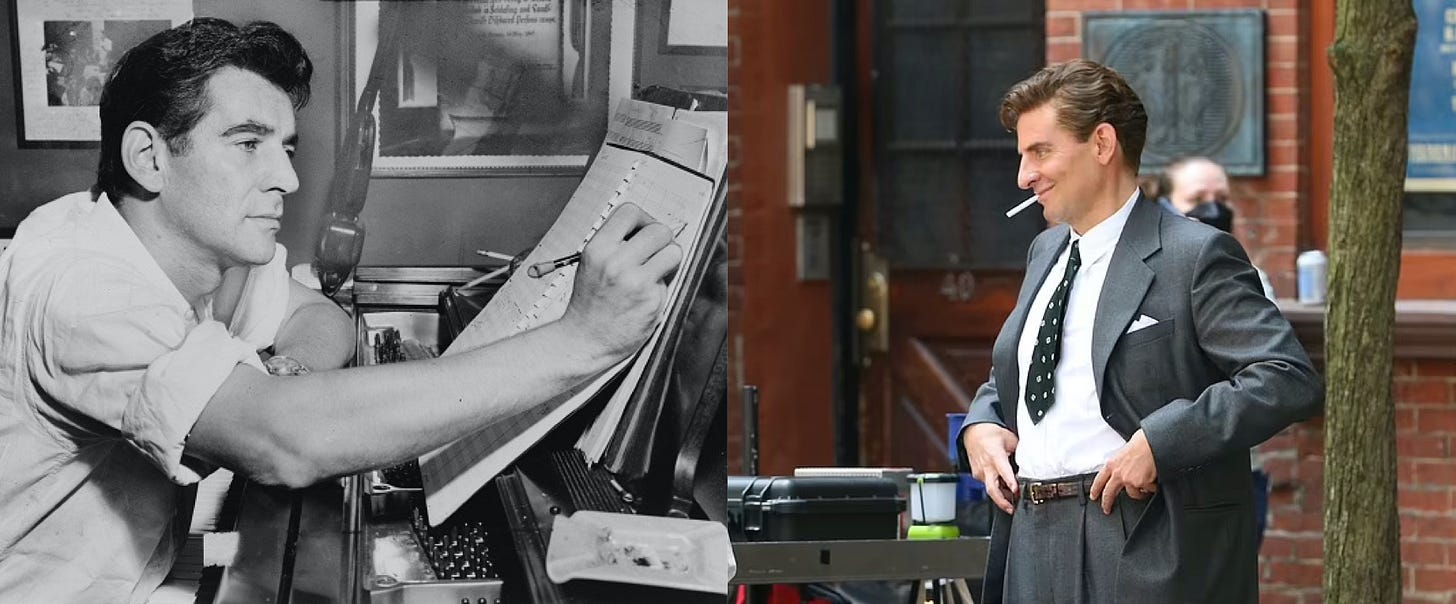
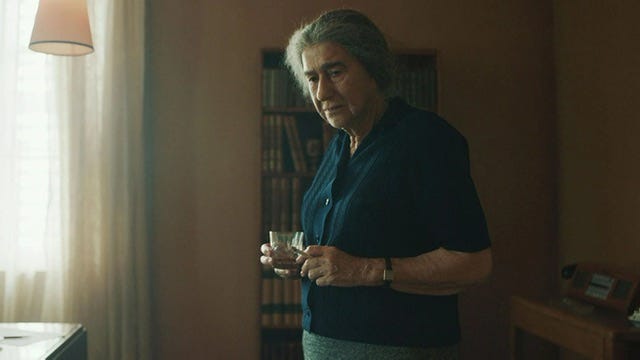
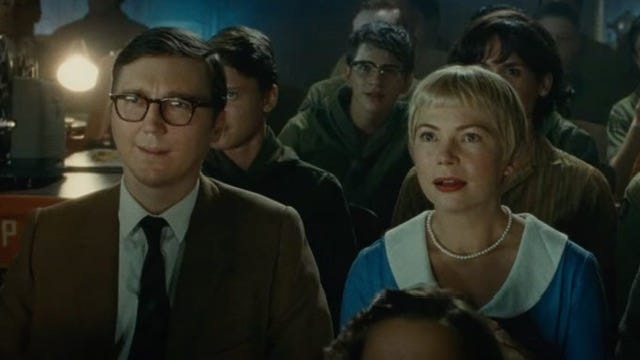
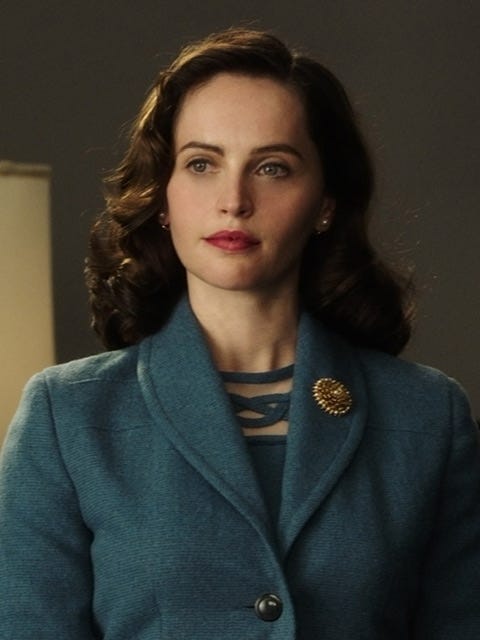
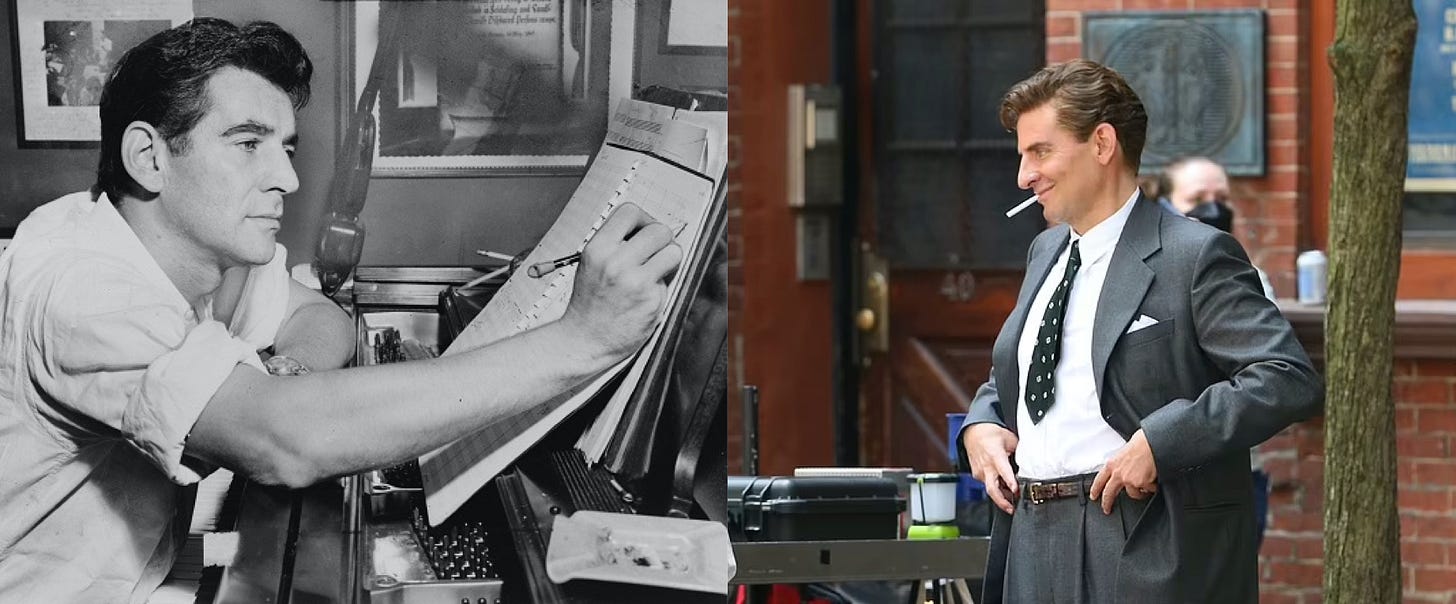

I really appreciated this take; the basic notion of "costuming" as Jewish is strange and often disturbing. I was not a fan of The Fabelmans, despite all the love it got, for some of the reasons the author presents. Michelle Williams doing her valiant best to be a certain kind of Jewish mother (uncomfortable to watch) and the sterotypical Judd Hirsch affectations really soured me on this film.